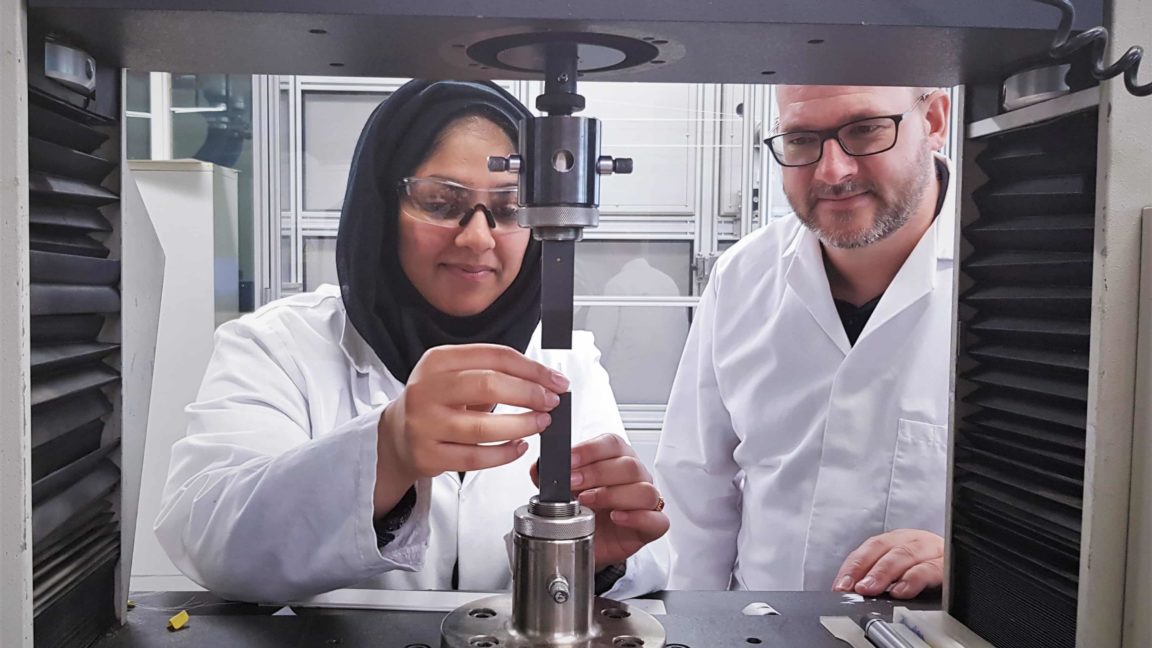Translate Summer Student Project blog: Ebeam treated polymers for sutures
This post is part of a blog series about 13 short-term projects Translate MedTech funded in summer 2019.
These Translate MedTech-funded projects let researchers hire students during their summer break to help develop innovative new medical technologies with commercial potential.
Read these blogs to learn about the work they completed.
Name: Hajrah Siddique
Host organisation: University of Bradford
Project title: Measuring the recovery force of Ebeam treated
polymers for sutures
My name is Dr Cristina Tuinea-Bobe and my research interest is related to development of bio-medical devices.
The current project that Hajrah, Dr Paul Spencer and I worked on was the measurement of recovery force on Ebeam treated polymers for sutures.
The overall aim is to create a shape memory suture product with “tuned” properties. Shape memory polymers (SMP) could replace conventional suture material in surgeries, especially minimally invasive surgery.
For example, after endoscopic keyhole surgery, stitching is difficult because of the confined space, and it is difficult to achieve a knot with the proper amount of tension on the tissue.
The SMP suture tightens itself in the human body when triggered by the heat or fluid of the human body. Often the activation temperature in candidate materials is higher than the ideal, being just above body temperature.
Ebeam treatment can change the activation temperature, and would avoid the use of additives that can leach out.
During the Translate Summer Student Project, Hajrah tested two types of polymers with 3 different thicknesses, and recorded the SMP recovery force during temperature-triggered recovery.
The injected moulded samples were Ebeam treated by Sherkin Technologies Ltd at the Daresbury Laboratory. Hajrah was trained in a range of material manufacturing and testing methods. The student learned data analysis techniques and to write scientific reports that capture the obtained results.
Furthermore, she learned to manage her project, to communicate and work in a team environment, and enhanced her engineering skills.
The results obtained from the student project exploring the use of Ebeam on polymers will create valuable preliminary data for a future grant that will successfully translate the product from research to clinical trials.
You can learn more about this project and others at Growing MedTech Translation 2019 on Friday 6 December 2019, where each Translate MedTech Summer Student Project lead will give a presentation about their work.

